Few, if any, physician researchers have done more to understand the long-term impact of Covid than Dr. Ziyad Al-Aly, a professor, nephrologist, and epidemiologist along with his team at Washington University, St. Louis. Here is the transcript (with links to the audio) of our conversation that was recorded one 7 September 2023.
Eric Topol (00:00):
Welcome to Ground Truths, and this podcast is a special one for me. I get to meet professor Dr. Ziyad Ali for the first time, even though we've been communicating for years. So welcome, Ziyad.
Ziyad Al-Aly (00:15):
Well, thank you. Thank you. Thank you for having me. It's really a delight and pleasure and an honor to be with you here today. So thank you. Thank you for the invitation, and most importantly, thank you for all the stuff that you do and you've been doing over the past several years, communicating science to the whole world, especially during the pandemic and enormously grateful for all your effort.
Background in Lebanon, the move to Wash U., and Epidemiology
Eric Topol (00:33):
Well, you're too kind and we're going to get into your work, which is more than formidable. But before I do that, because you have been a leading light in the pandemic and understanding, especially through the large veterans affairs population, the largest healthcare system in the United States, the toll of covid. But before we touch on that a bit on your background first, you're a young guy. You haven't even hit 50 yet, my goodness. Right. And you grew up in Lebanon, as I understand it, and you were already coding when you were age 14, I think, right? Pretty wild. And then perhaps the death of your father at a young age of multiple myeloma had a significant impact on your choice to go into medicine. Is that right?
Ziyad Al-Aly (01:28):
Yeah, that's how it is. So I grew up in Lebanon, and when I was growing up, the computer revolution at that time was happening and all of a sudden in my surroundings, there's these people who have these Commodore 64. So I decided that I wanted one. I asked my parents to get me one. They got me one. I learned coding at that age, and my passion was I thought I wanted to do then why not to do computer science. And then my dad fell ill with multiple myeloma and it was an aggressive form and he required initially a lot of chemotherapy and then subsequently hospitalizations. I do remember vividly visiting him in the hospital and then connected with the profession of medicine. I was not on that track. I didn't really, that's not all my youth. I wanted to be a coder. I wanted to be a computer scientist. I wanted to do basically work with computers all my life. That's what my passion was. And then redirected all that energy to medicine.
Eric Topol (02:32):
Well, you sure did it well. And you graduated from one of the top medical schools, universities at American University of Beirut, and came to St. Louis where you basically have for now 24 years or so, went on to train in medicine and nephrology and became a leading light before the pandemic. You didn't know it yet, I guess, but you were training to be a pandemic researcher because you had already made the link back in 2016, as far as I know, between these protein pump inhibitors and kidney disease later, cardiovascular disease and upper GI cancers. Can you tell us, was that your first big finding in your work in epidemiology?
Ziyad Al-Aly (03:22):
Yeah, we started doing epi. I started doing epidemiology or clinical epi right after fellowship, trained with mentors and subsequently developed my own groups and my own funding. And initially our initial work was in pharmaco-epidemiology. We were very, very interested in figuring out how do we leverage this big data to try to understand the long-term side effects of medication, which was really not available in clinical trials. Most clinical trials for these things track them for maybe 30 days or at most for few months. And really long-term risk profile of these medications have not been characterized previously. So we did that using big data and then subsequently discovered the world of environmental epidemiology. We also did quite a bit of work and environmental linking air pollution to non-communicable disease. And in retrospect, reflecting on that now, I sort of feel there was training ground that was training wheel out, how to really optimize our thinking, asking the right question, the right question that matters to people addressing it rigorously using data and also communicating it the wider public. And that was my training, so to speak, before the pandemic. Yeah,
Eric Topol (04:37):
Yeah. Well, you really made some major, I just want to point out that even though I didn't know of your work before the pandemic, it was already momentous the link between air pollution and diabetes, the link of PPIs and these various untoward organ events, serious events. So now we go into the pandemic and what you had access to with the VA massive resource, you seize the opportunity with your colleagues. Had some of this prior work already been through that data resource?
Ziyad Al-Aly (05:18):
Yes, yes. Our work on PPI on adverse events of medications, including proton pump inhibitors, was all using VA data. And then our work using environmental epidemiology, linking air pollution to chronic disease was also using VA data. But we linked it with NASA data with sort of satellite data from NASA that capture PM 2.5. But NASA has these wonderful satellites that if a chemical is on earth and has a chemical signature that can actually see it from space and measure its concentration. So that data is actually all available free of charge. So what we did is I went to these massive databases at NASA and link them to our VA data, and then we're able to analyze the relationship between exposure to high levels of air pollution in the United States and then subsequent disease in veterans in our database.
Eric Topol (06:11):
That was ingenious to bring in the NASA satellite data. Big thinker. That's what you are. So now you are confronted with the covid exposure among what millions of veterans. Of course, you have controls and you have cases and you're now seeing data that says every system is being hit here and you write, you and your colleagues wrote papers on virtually every system, no less the entire long covid. What were the surprises that you encountered when you were looking at these data?
Initial Shock on Covid’s Non-Pulmonary Sequelae Identified
Ziyad Al-Aly (06:47):
I remember the initial shock and our first paper when we did our first paper and there was a systematic approach looking at all organ systems. We weren't expecting that because at that time we were thinking SARS-CoV-2 is a respiratory virus. We know respiratory virus may have some post-acute sequela and maybe cardiovascular systems, but we weren't really expecting to see hits in nearly every organ system. And remember when we first got the results from what then became our nature paper, our first paper in nature around this, I doubted this. I couldn't really believe that this is really true. I looked at the association with diabetes and I told Yen, my colleague here who's really absolutely, absolutely wonderful, told him, there must be a mistake here. You made an error. There's an error in a model for sure. This is not believable. That can't be like SARS-CoV-2 and diabetes.
(07:39):
This is impossible. There wasn't really an arrow in my brain that sort of linking SARS-CoV-2 diabetes. I doubted it. And we went back to the model, went back to the data, rebuilt the cohort, redid the whole experiment again with controls. The same thing happened again. I still was not believing it, and it was like, end, there is something wrong here. It's weird. It's strange. This is not how these things work. Again, from medical school, from all my education, we're not trained to think that viruses, especially respiratory viruses, have these myriad effects and all these organ systems. So I doubted it for the longest time, but the results came back exactly consistent every single time the controls work, our positive control work, our negative controls work. Eventually the data is the data, then we then submitted it for a review.
The Largest Healthcare System in the United States
Eric Topol (08:40):
Yeah. Well, I want to emphasize this because many have tried to dismiss their data because it's average age of 60 plus and it's men and it's European ancestry and for the most part, but everything you found, I mean everything you found has been backed up by many other replications. So for example, the diabetes, particularly the Type 2 diabetes, there's now 12 independent replications and a very similar magnitude of the effect, some even more than 40% increase. So we didn't need to have more in the diabetes epidemic than we already have in the world. But it looks like Covid has contributed to that. And what do you say to the critics that say, oh, well these are old white men are studying and does it really apply long and all this multi-system organ hits to other populations given that, for example, the prototypic long covid person affected might be a woman between age 30 and 39. What's your sense about that?
Ziyad Al-Aly (09:54):
The way I think about it is that our data are massive. And while the average age is 60, the data, because these are literally millions of people, some cohorts are 6 million. Some of the studies that we've done, 6 million people, so the average age could be 60, but there are literally hundreds of thousands in their twenties and thirties and forties, and they're all represented in the data. And the data is obviously also controlled for age and race and sex. And I tell people this thing that they say, oh, well, your data is only 10% women, and then this is why. But 10% out of 6 million people is 600,000 women. I told a friend the other day that 600,000 women could fill six Taylor Swift stadiums. So it isn't really small. And even if we were to only analyze people in their twenties and thirties, or we could do that, we could do that.
(10:44):
We could easily do 300 or 400,000 people study of people from age 20 to 40. In our experience, we get more or less the same results because again, the results are adjusted for age. And then the second component of my thinking about this, and as you pointed out, the gold standard and science is reproducibility. Does this really finding reproduce in other settings? Other people are also seeing it, are able to validate it and reproduce the finding. Or this really some peculiar thing about the VA is happening only in the VA world or the VA universe. That doesn't really happen outside. And then so far, not only the findings in the pandemic, all the findings prior to the p p use and chronic kidney disease, PPI use and other side effect, all the pollution work has been reproduced to the T by Michelle Bell by Francisca Doci at Harvard to the T.
(11:35):
All these pollution studies have been reproduced from using Medicare data using data that's outside the VA, other data sets. And also some European friends and European collaborators reproduce the same thing. So again, the gold standard in science reproducibility, but healthy skepticism is skepticism is also healthy because we always want to challenge the finding. Is this really true? Can we bank on it? And really the most important thing inside reproducibility really is to be able to take this finding or to take the question somewhere else and then be able to reproduce the evidence that is seen in any dataset.
The New 2-Year Follow-Up Study
Eric Topol (12:13):
Right. Well, so you have really laid out the foundation for our understanding of Long Covid. I agree with your point that there's plenty of people who are more in that prototypic age and gender. But by doing so, we have these kind of two paths. One is the symptoms of Long Covid where as you know, there's reported even a couple of hundred and some of course in clusters. And then there's these organ hits across neurologic, cardiovascular, kidney, and on and on. And you recently of course provided the two year data on that, which of course is important because as you know from your data, these are mostly, if not almost exclusively unvaccinated early in the pandemic. Could you comment about what your main findings were in two years and what you think would be the difference if this was a widely vaccinated population?
Ziyad Al-Aly (13:20):
Sure. In the two year studies, what we've really seen is that we, first of all, to introduce the readers or the listeners, there were two groups. We split them into two cohorts, non hospitalized and hospitalized people with covid 19 compared to controls. Now in the non hospitalized group, in both groups we assessed about 80 sequela of SARS COV to two. We've seen about 30% the risk for 30% of the SQL remain elevated at two years in the non hospitalized group, those are the people who really had mild disease that did not necessarily hospitalization yet even at two years, they remained at higher risk of about 30% of the sequela that we evaluated in that study. The risk profile for the people who were hospitalized was much more complicated or much more or less optimistic in the sense that they were about 65% of the sequela also registered at a higher risk in the covid group versus the control group.
(14:25):
So now it's very, very important for people to really know that this is really because we needed to do a two year study, we couldn't really enroll somebody in the study who had covid six months ago. They don't have a two year follow up. So this is a two year study. By necessity, we had to enroll people from the very first year of the pandemic, which meant that most of the people there or nearly all actually were the pre delta era, the ancestral strain or pre delta era and were non-vaccinated. So to the core of the question, how does this risk profile change with time? And my hunch is that a lot of things have changed. Obviously now we have vaccination, we have population level immunity. The virus itself has changed. We have antivirals, Paxlovid and others, but mainly Paxlovid and all of those are known to ameliorate the risk of not only acute disease but also chronic disease or the risk of Long Covid to various degrees.
(15:24):
But there's certainly we see in our work and other people's work, there is evidence of risk reduction in the risk of long-term sequelae or long-term consequences of SARS-CoV-2 infection. So that leads me to believe that the risk now or would be lower, but that's really a hypothesis. I don't have data to back this up. You asked me for data today for three year, I don't have it yet. We're thinking about it a lot. We're trying to work on it. I don't have it yet, but the hunch is that this is really, it's, it's lower now than a way it was.
Clarifying the Role of Reinfection and Long Covid
Eric Topol (16:06):
Right, right. No, that'll be really interesting to see. And I certainly agree with you as other studies, obviously none as large as what your data resources with the Veterans Affairs have suggested that the vaccines and boosters are providing some protection. Paxlovid, Metformin in a randomized trial, as you well know now, one of the papers of the many in top tier journals that you published was about reinfection. And this led to some confusion out there, which I hope that you'll be able to straighten out. I saw it as a dose response whereby if you have multiple re infections, the chance of you developing multiple of a long covid syndrome would be increased to some degree. Can you clarify that interpretation?
Ziyad Al-Aly (16:57):
This is exactly right. So a lot of people sort of interpreted it as we're trying to evaluate the risk of second infection versus the first, or whether the second infection is more mild or more severe than the first. That's not really the study question. So what we did, we sort of said that now we know a lot of people had a first infection that's already happened to these people. They cannot go back and erase it or do anything about it. They already had a first infection. What's the most important question for somebody who had a prior infection going forward? Does it matter to me or is it helpful to me to protect myself from the second infection? Right. So we designed the study and arguably designed a little bit was confusing to some people in the media. We designed the study to evaluate the risk of reinfection versus a counterfactual of no reinfection.
(17:50):
So basically if you have two people who have equal characteristics at baseline, everything equal, they had a first infection, one protected himself or herself from getting a second infection and the other one did not and then got a second infection. What are the outcomes in the person who did not get a second infection versus a person who got a second infection? And the results are very, very clear that a second infection or reinfection is consequential. It adds or contributes additional risks both in the acute phase, it can put even reinfection can put people in the hospital, can also result in some death that's very, very clear in our data and is very clear in other data as well and can also contribute risk of long. So I think the best interpretation for this is that for people to think that two infections are worse than one and three are worse than two, so two infections are worse than one and three are worse than two.
(18:46):
But we've learned a lot from this paper because I definitely agree and I've seen a lot of not the right interpretation for it. We discovered that America does not like counterfactual thinking. It's really hard to explain counterfactual thinking, but that's really what we thought about as the most important question to answer. It isn't really whether a second infection is really milder or more severe, and at first is more like if you were to do something about it, does it really help you to prevent yourself from getting a second infection or a third infection? For us to design the study to answer this specific question, we compared reinfection to no reinfection and we thought we wrote it very clearly still some headlines where, oh, these are comparing a second infection to a first infection, which that's was not our intent. We didn't really design this set this way.
(19:42):
As a matter of fact, we had a little bit of a hunch that it might be misinterpreted this way at the very, very last minute. In the copy editing stage, I inserted a sentence in the discussion that our results and our work should not be interpreted as a comparison of a second infection versus first, I hope the editor is not listening. I inserted this at the last minute in the copy editing stage in the limitation section to help people understand that this is not an evaluation or a competitive evaluation of the risks of the second infection versus the first, but more a second infection versus no second infection.
Getting Covid
Eric Topol (20:21):
Right, right. No, I'm so glad you clarified that because I think it's an important result and it has indeed. Everything else you've done been replicated. So now I want to ask you have, are you in Novid? Have you ever had Covid?
Ziyad Al-Aly (20:38):
Oh, I did have. I tried to reduce my risk and I did everything I'm supposed to do except that this June, about two months ago, I traveled and I got it while traveling. I think, I guess I was doing all the precautions that I could and I got it. I ended up having, although I'm young and I don't mind sharing, I got Pax Ovid because I got back slowly and I got over it. But that was my first, and it was only two months ago and I did my best throughout this pandemic to prevent it. But then travel is tricky because you are exposed a lot of people on the plane and it's tricky at the airport is very busy, crowded and it's very tricky. No,
Eric Topol (21:27):
Especially because people are not taking precautions anymore. And so you go to these crowded places with poor ventilation and very few people wear masks, and we still have all these people who are anti mask and that isn't helping either. So the next thing I was going to ask you about was you've done this remarkable work, a series of papers that have led the pandemic and in fact, you really have the only pulse on the United States data because outside of what you have in terms of all these electronic health records and longitudinal follow-up, we don't have any health system that has this capability. So we have relied on you and your team to give us these really critical readouts. What are you going to do next?
Ziyad Al-Aly (22:20):
We're very committed to understanding Long Covid. So we feel there is a lot of knowledge gaps that still need to be unpacked and understood, and we really, I feel committed to it. So we came to long covid because we sort of felt the voice of the patient advocacy groups at the very early phase of the pandemic saying at that time they were not so organized, but they were saying an up at pieces that we're having a problem here and somebody needs to look at it and somebody needs to evaluate it. We immersed ourselves in long covid, really inspired by the patient advocacy groups initially, and we feel connected to this. So that's, we're definitely committed to deepen our understanding of long covid. But having said that, I sort of feel that I do hope that our work inspire others that there is a lot of value in data, there are limitations. Existing data or big data is not without limitations. There are limitations in the data, but it can also unlock a lot of insights, especially in crises like the one we just experienced, the pandemic.
Missed RECOVER Opportunities and Testing Treatments for Long Covid
Eric Topol (23:28):
I think you have some extraordinary opportunities. So for example, when you found what previously was not appreciated for the data resource of the Veterans Affairs, the relationship between a medication protein pump inhibitors and kidney and cardiovascular diseases, I wonder for example, because so many people take metformin, would Metformin show protection from long covid within the Veterans' Affairs database as an example? Of course, maybe there are even some medications that are commonly used that offer a protective effect. I mean, you might be able to look at something like that because the data you have to work with in so many ways is massive and unprecedented.
Ziyad Al-Aly (24:14):
Well, yeah, I mean the scale of a data is really amazing. So it is really the largest integrated healthcare system in the US and it's really fully integrated. There's lab data, medication data, socio demographics, everything benefits data. Literally everything is in one place and there is opportunity to try to evaluate therapeutics effective metformin, other anti hypoglycemics, maybe GLP ones. And so there's a lot of these hypotheses that they, because the virus might reside in fat cells, there is this hypothesis that we just recently reviewed in a beautiful review in nature immunology, unlike the viral resistance hypothesis, so as a potential mechanistic pathway for long covid. So there are a lot of hypotheses around metformin and GLP one, and I think the VA environment or data environment is certainly good to test those, at least to help inform trials in this space. Now, there is already a trial on metformin, so that's done by David, but looking at it from another angle in the VA data would also, I think would add insight and would further contribute to the national conversation.
Eric Topol (25:30):
Right. I mean I think the Canadians, McMaster are starting a very large trial, Metformin with 5,000 participants. But I wonder if there were these drugs that are linked to mTOR and mitochondrial function enhancement, which as you said, not only was there an excellent review on the persistence of the virus in reservoirs, but also one that you know of well, bringing in the potential of mitochondrial dysfunction as a unifying theme. Now as we go forward, obviously the covid problem is not going away. We have this circulating virus in one form or another, one version, one strain or another over the years ahead. And we only know of one way to avoid long covid for sure, which is not getting covid in the first place. And at least we have some things that would help if you have Covid, like what you've already reviewed with Paxlovid. But the question is there's no treatment out there. And you have been of course helping as an advisor to the White House and WHO and the patient led collaborative. And the frustration out there is high because the big recover at NIH had over $1 billion and they have done really almost nothing in clinical trials. Imagine if you had 1 billion to work with. Can you comment about the fact that here we are, we're in September of 2023 and we don't even have one good clinical trial of a potential therapeutic.
Ziyad Al-Aly (27:09):
So this is enormously frustrating to me as well. It should
Ziyad Al-Aly (27:15):
Yes, yes, yes. So no, we are definitely on the same page. So this is enormously frustrating to that. And three years into the pandemic, we still have, and I do remember when I see the white box that you put on your tweet and I think was recently illustrated in Fortune Magazine. There's three years into it. This is a full list of therapeutics for long covid and it's literally zero, nothing there. So it's very, very, very disappointing. And I do think that we want recover to succeed. That's really very, very important. We want recover to succeed. The patient community want also recover to succeed. And I think this really hopefully an invitation, all this what I think is a constructive criticism of recover, hopefully the recover folks will take it to heart and will sort rethink the approach and rethink the allocation of funds. In particular.
(28:08):
What really bothers me the most, and I've told them about this, I mean, as you know, I talked to multiple people in HHS and White House and all that. What really bothers me the most is that a lot of the money had been actually allocated to the observational arm to recover. And my argument to them is that actually we can produce the same. We actually not can we have produced all that evidence for peanuts two years ago. We need a study in JAMA to tell us that while long covid is characterized by fatigue and brain fog, I know that already, I already did that two years ago, an observational study. Well, we need interventional studies. What we need, most of the money should really be allocated to interventions, not really observational arm. And it's not too late to correct course. It's absolutely not too late to correct course. Well,
Eric Topol (28:56):
You're kind, but I'm afraid they've run out of money. And so I don't know they're going to get any more to do the trials, which are as very expensive to run. So it's not too late to do the trials, but unfortunately it's very hard to get the funds to support them. I think
Ziyad Al-Aly (29:14):
There may be mechanisms for them to reallocate things, but also very importantly that we cannot, even if they reallocate this $1 billion to long covid, I think we need a longer term program and COVID should have a support that it should be. We argued that loco, which should have its portfolio at NIH, maybe not an institute and have a line-item funding so year there will be funds for long covid. Now we're told past F Y 25, fiscal year 25, there won't be additional funds for long covid. And that's really not how we should treat really the long-term consequences of SARS-CoV-2. And why is that the case? Why we ask why that's really will not only pay dividends to help us understand what long covid is and how to best treat it. It also can shed light into the other basket of infection associated chronic illnesses that I argue that we have ignored for a hundred years.
(30:12):
Again, COVID or SARS-CoV-2 is unique and it's not is unique because now we're in a pandemic and the scale of it is really big and all of that. But if you really think about it, there's actually a lot of viruses that have produced a lot of long-term effects that we've ignored their long-term consequences for a long time from the research perspective and also from clinical care. And that needs to be researched. So research on long covid or understanding along covid will help us with long covid, help us better understand the infection associated chronic illnesses. And three, also help us with pandemic preparedness. There is almost like a universal agreement that with climate change, with human encroaching on animal habitat, with human traveling so much more in the 2020 first century than in the 20th century, that the frequency of pandemics in the 21st century is likely to be higher than the frequency of pandemic in the 20th century.
(31:06):
So we're going to experience more pandemics in this century. We have to be prepared for them. This pandemic is not the first and unfortunately, unfortunately, it's not going to be the last. There's going to be another one in five years. In 10 years, in 20 years, we don't know. We cannot really predict these things, but it's almost certainly there're going to be one or more than one downstream and we have to be prepared for it. So I think we should not be shortsighted. I also argue that we already paid the price, the hefty price in this pandemic, more than 1.1 million deaths. We already paid the hefty price. We already paid a very, very dear price in this pandemic. Let's learn from it. Let's learn as much as possible from this pandemic. Let's learn to be able to help us for the next one.
Post-Viral Syndromes Multiple Years Out
Eric Topol (31:47):
Now having said, I want to underscore a point you made, which is it's not just this virus of SARS-CoV-2, the Myalgic Encephalomyelitis (ME/CFS) and many other viruses have led to a post-viral syndrome, which can be very debilitating. So yes, we can anticipate that not only do we have a burden that goes well beyond covid, but we may see this sort of thing of lasting debilitating impact of future pathogens. But to that mind, I want to ask you, because when I studied on the influenza 1918 and the polio epidemics, what I saw was that we saw many years later new things that had not been seen at two years or three years. So as you know, after influenza, Parkinson's showed up 15 years later and after polio, 30 years later, 40 years later, we saw the post-polio syndrome. So I hope within the Veterans Affairs you'll continue to look for things that we haven't even seen yet, which are kind of what I would say are the known unknowns that there could be further surprises to this problem. I don't know if you have a comment about that.
Ziyad Al-Aly (33:09):
We're cognizant of the prior observations, the historic observations that it took several, it took more than a decade for Parkinson's to show up after the flu. And there potentially could be latent effects of viruses. Things that we're not seeing now, we still don't know because obviously the whole pandemic is in its fourth year. So we don't have 10 year follow up, but we are sort of building our systems here to look at five years and look at 10 years with an eye that if there are latent effects of SARS-CoV-2 infection, we want to be able to see it and characterize it and understand it and hopefully figure out how to best prevent it and then treat it. So we're very, very cognizant of the fact that viruses, some viruses can have very latent manifestations. For example, EBV and multiple sclerosis, it doesn't show up immediately. It shows up way down the road. Epstein Barr virus and multiple sclerosis. A lot of viruses, not one, again, SARS-CoV-2 is not unique. There are a lot of viruses produce long-term conditions and they have different timing when they show up. And so we're very, very interested in this and certainly are building our data systems here to look at five years and 10 years.
The Lack of Public Regard for Long Covid
Eric Topol (34:20):
Yeah, that's perfect. I knew you would. I just wanted to make sure I touched on that with you because you don't miss a beat. Now, the problem I see still today, Ziyad, is that there's lack of regard, respect, acknowledgement for long covid despite your phenomenal work. Despite that there's 60 million people around the world and then still more as infections again are on the uprise, there's people out there saying that these are malingers, that there's no such thing. I can't even post things about Long Covid on social media like Twitter/ X because I get all this pushback that it's made up and it's a hoax and this is just unnerving because we both know people who have had, they were athletic and now they're either wheelchair or bound to bed. I mean, this can be so people are suffering. What can you say about the fact that there are these people who are trying to dismiss long covid after all the work that you have done along with so many other researchers around the world to nail this down as a very big issue?
Ziyad Al-Aly (35:36):
So I definitely think it's a big issue. It's really unfortunate that in the US and actually some other parts of the world, that the whole pandemic has been politicized. And it's really sad to see, I mean, not as much as you, but I get some of the pushback on Twitter. And even sometimes when we publish a paper, sometimes people find my email, I don't know how they find my email. They find my email, I get what I call them nasty grams. Really sort of a very, very unpleasant emails, very unpleasant emails. And I just delete and I don't respond. So it's really hard to understand. It's really hard to understand. But there is a lot of misinformation, a lot of disinformation, a lot of politicization of the pandemic, a lot of politicization of vaccines and their side effects. And it's almost polluting the national conversation.
(36:30):
And it's toxic because these things are, this is not free speech. This is actually speech that harms other people. There are people that feel disenfranchised, that feels sort of the feel that their illness is not recognized. Or some people refer to it as gaslighting condition is being gaslit by this toxic discourse. And that's really unfortunate. But I wish I have a very clear solution or very clear understanding of how to address this. It's something that baffles me. And because of some of the stuff that I experienced, I sort of classify as almost toxic. It's really
Eric Topol (37:09):
Very, again, you're being kind because it's, or I mean you're not. I think it's so dreadfully toxic. It's disgusting, despicable. Now I'm disconcerted because for example, the last time we had a state of the Union address by the president, he said, the pandemic's looking good. I've never heard our president say about long covid and our other leaders in our country to acknowledge how vital this is. It's great that we had the N I H to allocate significant funds, but may be that a lot of that unfortunately has been wasted. But I think we can do much better in getting the point across that this is a really big deal, that so many people, their lives have been changed. We don't have a remedy in sight. Only a very limited number of people, as you've published, really fully recover, particularly if they've had a severe case. So I hope that in the future we will have a better consensus among the spokespeople leadership that acknowledges the breadth and depth and seriousness of this problem. So the last thing I want to ask you about is you have had a record of prolific work in this pandemic, and I want to know what your daily routine is like. Do you sleep? What do you do?
Ziyad Al-Aly (38:46):
We feel very committed to this. So we are really working constantly almost all the time. And definitely I do sleep and I do go to the gym and I try to maintain some healthy balance, but I also work on Saturdays to try to write papers and move things forward. We're a small team, but we feel very driven to keep moving the ball forward long. And really honestly, thanks to the patient community that has supported us from day one actually inspired us and supported us from day one. So feel very connected to this cause and feel, want to move it forward. And it's a lot. But again, kudos to my team. They're amazing and it's a small team, but they're really, really absolutely, absolutely amazing people. And you do
Eric Topol (39:28):
A lot of kudos to you too, because you've been leading this team and you've illuminated Covid from the US standpoint, no group, no less for the world. And these studies have been one after another. Just really an extraordinary and seminal paper. So in closing, Ziyad, I want to thank you for what I consider heroic efforts. You and your team, you have lit up this whole space of covid for all of us, and it's superimposed on great work that people didn't know about that you were doing. The Washington University of St. Louis, one of the leading academic medical centers in the country and the world as well as the Veterans Administration should be so proud of you and your colleagues for this work. This is tireless work. I know every time you submit a paper and every time you go through all the peer review and the revisions and the resubmission, and then you've done it all through these years of the pandemic, and I know you'll continue as well. So thank you for this indefatigable effort, which has really been extraordinary and I look forward to keeping up with you and all the future efforts, and I know you'll be on it for years to come.
Ziyad Al-Aly (40:51):
Well, thank you. Thank you. Thank you for having me. And again, thanks also for all your effort in this pandemic communicating science to elevating science and communicating to the wider public now, all your wonderful, amazing, gigantic prior contributions. So thank you for your contribution to America and the world, and especially being the communicator in chief throughout this pandemic.
Eric Topol (41:12):
Oh, you're too kind. We'll talk again. I hope soon and great to be with you today. Thank you.
Ziyad Al-Aly (41:18):
Thank you.
If you prefer to watch the whole convo by video, here Is the link

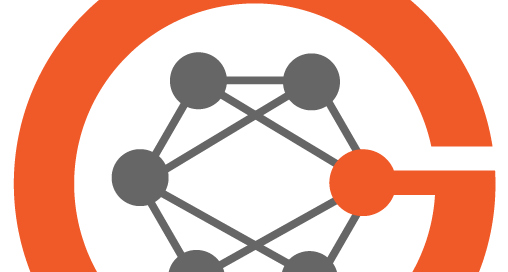
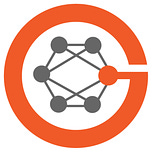


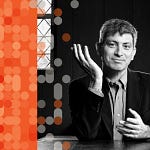
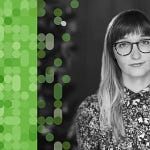
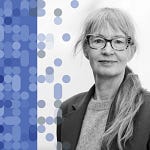
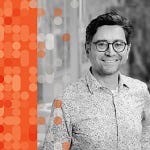
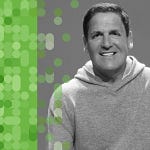
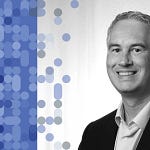
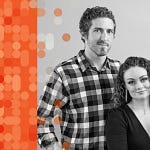
Share this post